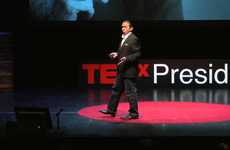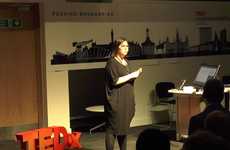
Wael Ghonim Keynotes
The Wael Ghonim speech on social media describes his role as an Egyptian activist during the Arab...

Need Inspiration?
Get inspired by 4,000+ keynote speaker videos & our founder, a top keynote speaker on innovation.
Wael Ghonim's Talk About Polarization is on Driving Change
Alyson Wyers — February 6, 2016 — Keynote Trends
In his talk about polarization, Wael Ghonim encourages people to design experiences in social media that can create lasting change. Known for his involvement in the Arab Spring, the speaker explains how the same tool that helped Egyptians topple a government also tore them apart.
While social media launched a decentralized movement that proved to people they weren't alone, the post-revolution events also showed a failure to build consensus and a political struggle that led to intense polarization. Ghonim's speech explains how social media platforms facilitated the spread of misinformation and rumors, as well as hate speech.
The talk about polarization identifies five critical challenges facing social media: not knowing how to face rumors; the creation of echo chambers (people only communicate with others they agree with); online discussion quickly descends into angry mobs; the difficulty to change opinions; and experiences are designed to favor broadcasting over engagement. He states "we need to rethink today's social media ecosystem and redesign its experiences to reward thoughtfulness, civility and mutual understanding," thus leveraging social media to overcome the less noble aspects of human nature that are amplified online.
While social media launched a decentralized movement that proved to people they weren't alone, the post-revolution events also showed a failure to build consensus and a political struggle that led to intense polarization. Ghonim's speech explains how social media platforms facilitated the spread of misinformation and rumors, as well as hate speech.
The talk about polarization identifies five critical challenges facing social media: not knowing how to face rumors; the creation of echo chambers (people only communicate with others they agree with); online discussion quickly descends into angry mobs; the difficulty to change opinions; and experiences are designed to favor broadcasting over engagement. He states "we need to rethink today's social media ecosystem and redesign its experiences to reward thoughtfulness, civility and mutual understanding," thus leveraging social media to overcome the less noble aspects of human nature that are amplified online.
2.9
Score
Popularity
Activity
Freshness
















